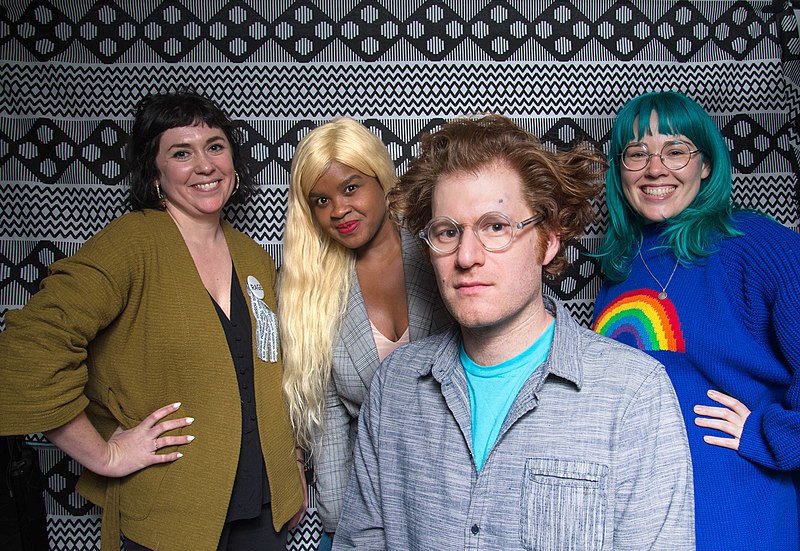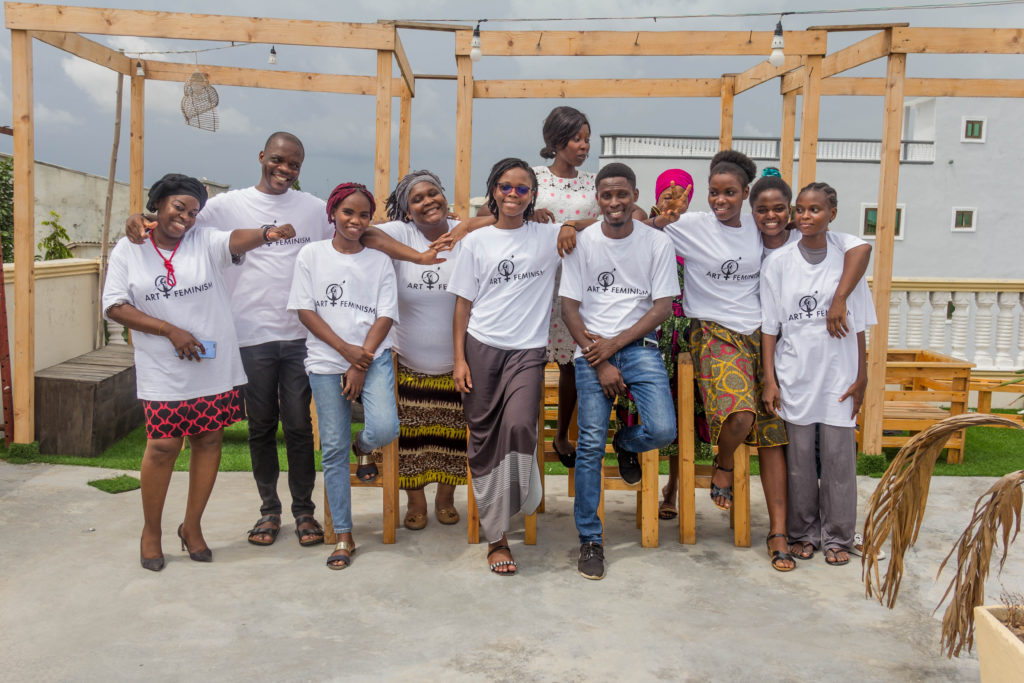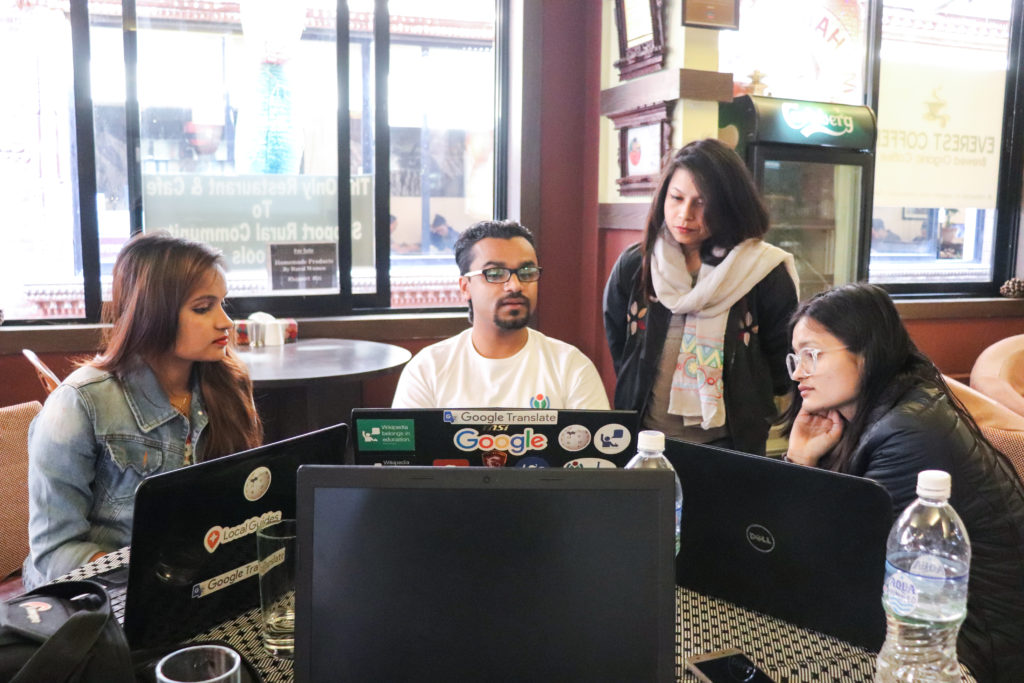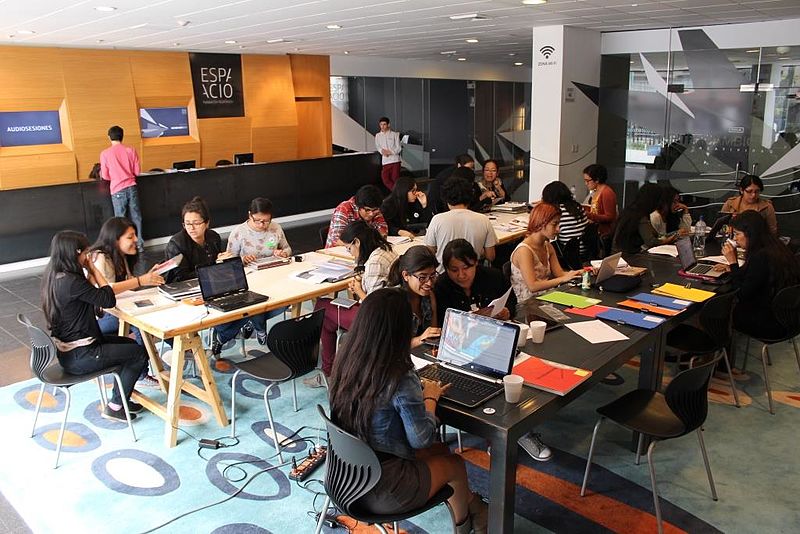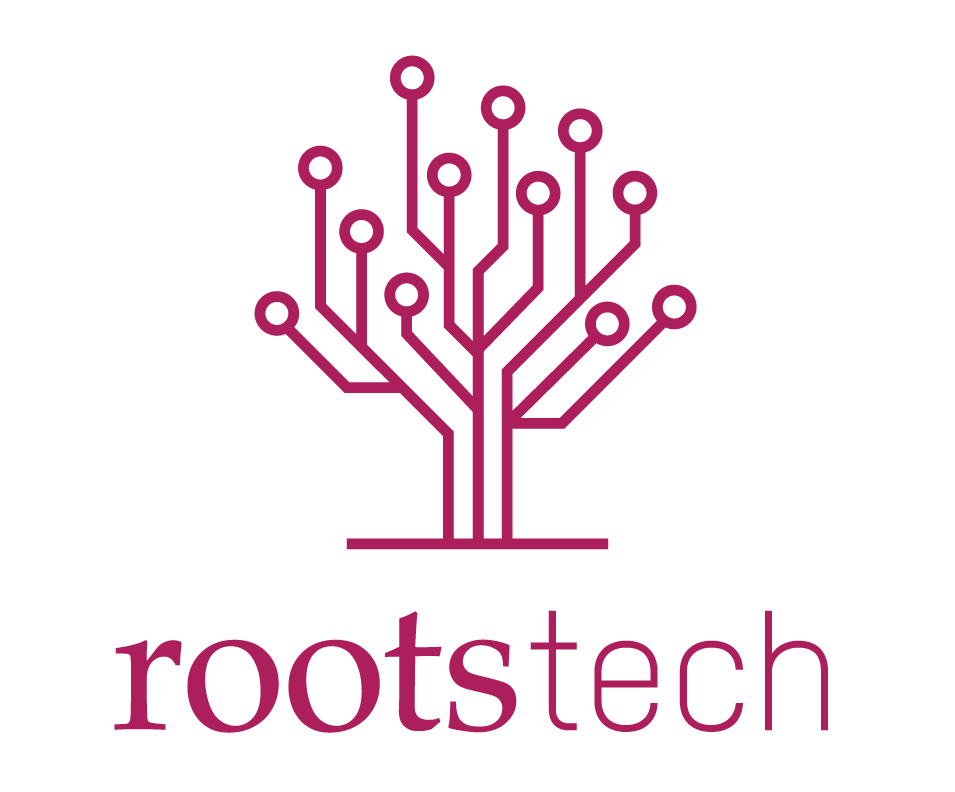
When it comes to whose and which stories have been captured by the historical narrative, women have been disproportionately left out. A 2018 survey from Wikipedia across 12 different language versions found that 90% of the respondents reported their gender as male with just 8.8% identifying as female and 1% as other. In addition, a 2021 study found that although biographies of women only make up 17% of those on Wikipedia, 41% of the biographies nominated for deletion were about women. This gender bias affects the creation and content of the pages on Wikipedia, with some non-male participants feeling like there is a barrier to participating due to factors such as gatekeeping, harassment, and frequent challenges of their work. In honor of Women’s History Month, we’d like to spotlight a public archive from a Byte4Byte partner that works to challenge these historical gaps on Wikipedia and beyond.
Started in 2014, Art+Feminism was founded as a project dedicated to increasing the visibility of female artists on Wikipedia to correct biases. In the organization’s own words, they wrote that “Content is skewed by the lack of female participation. Many articles on notable women in history and art are absent on Wikipedia. This represents an alarming aporia in an increasingly important repository of shared knowledge.” To rectify this, the organization hosts edit-a-thons globally to encourage the creation and editing of such Wikipedia pages. Since then, they have been responsible for the creation and improvement of around 84,000 Wikipedia entries. Their Permanent archive, The Art+Feminism Archive, showcases the people and the edit-a-thons that have resulted from their numerous efforts to bridge the information gap for women.
The vision Art+Feminism imagines is “an internet that reflects diverse global histories of art-making, where communities who have most often been written out of history feel welcome and empowered to participate in writing (and righting) our stories.” Here at Permanent, we also believe in ensuring that our community feels empowered to tell their stories, particularly those that are typically unheard, that reflect the rich tapestry of experiences that make up our larger historical narrative.
Capturing the past ten years since the organization’s conception, Executive Director Kira Wisniewski writes that their Permanent archive tells the story of, “how it’s grown from a passion project among four friends to a global community of information activists working together to close the gaps related to gender, feminism, and the arts, beginning with Wikipedia.” Documentation relating to their extensive efforts can be viewed on their Wikimedia Commons page here. These efforts can be seen in their archive that not only captures the work that has been done, but also the faces behind that work from all over the world.
A particular gem of the archive is their folder of work from the Call to Action Art Commission. Started in 2017 by Art+Feminism, the commission aims to “highlight the work of contemporary artists and to expand the body of images available that represent the project, helping to spread the word about the campaign and the artists.” These images illustrate the diversity of voices that make up their organization, while also spotlighting contemporary artists, the very same people who could one day need a Wikipedia page to describe their body of work. You can view more of the images here.
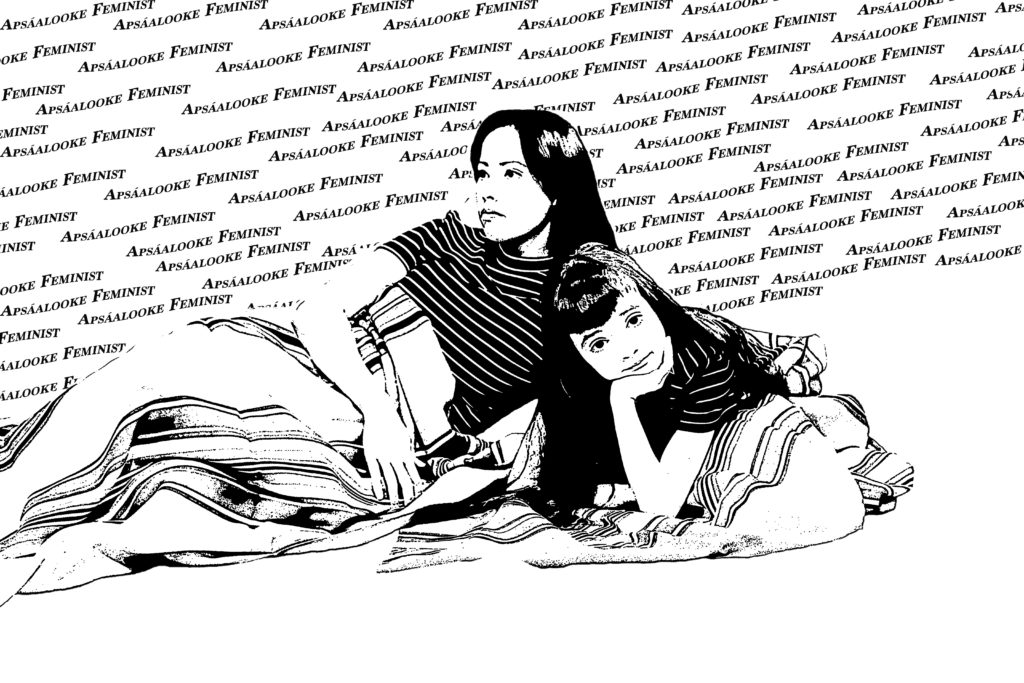
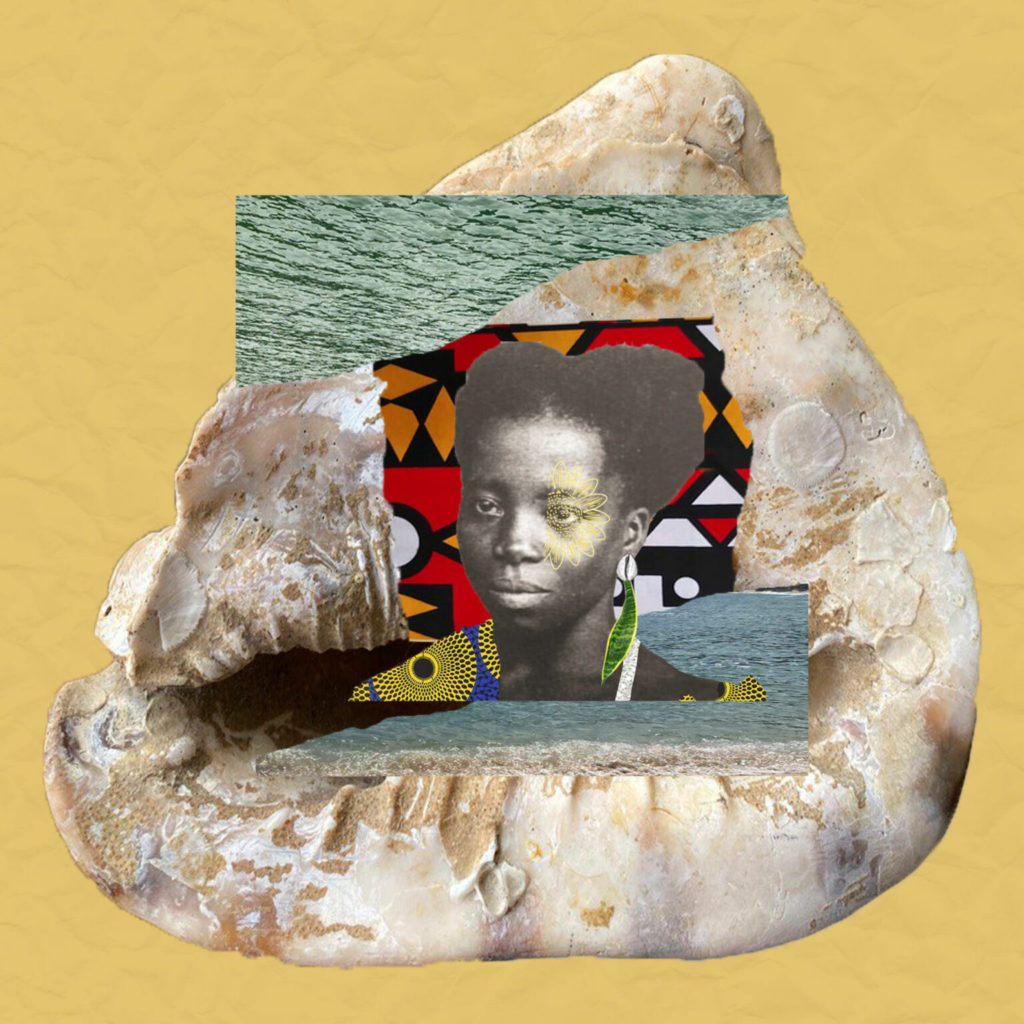
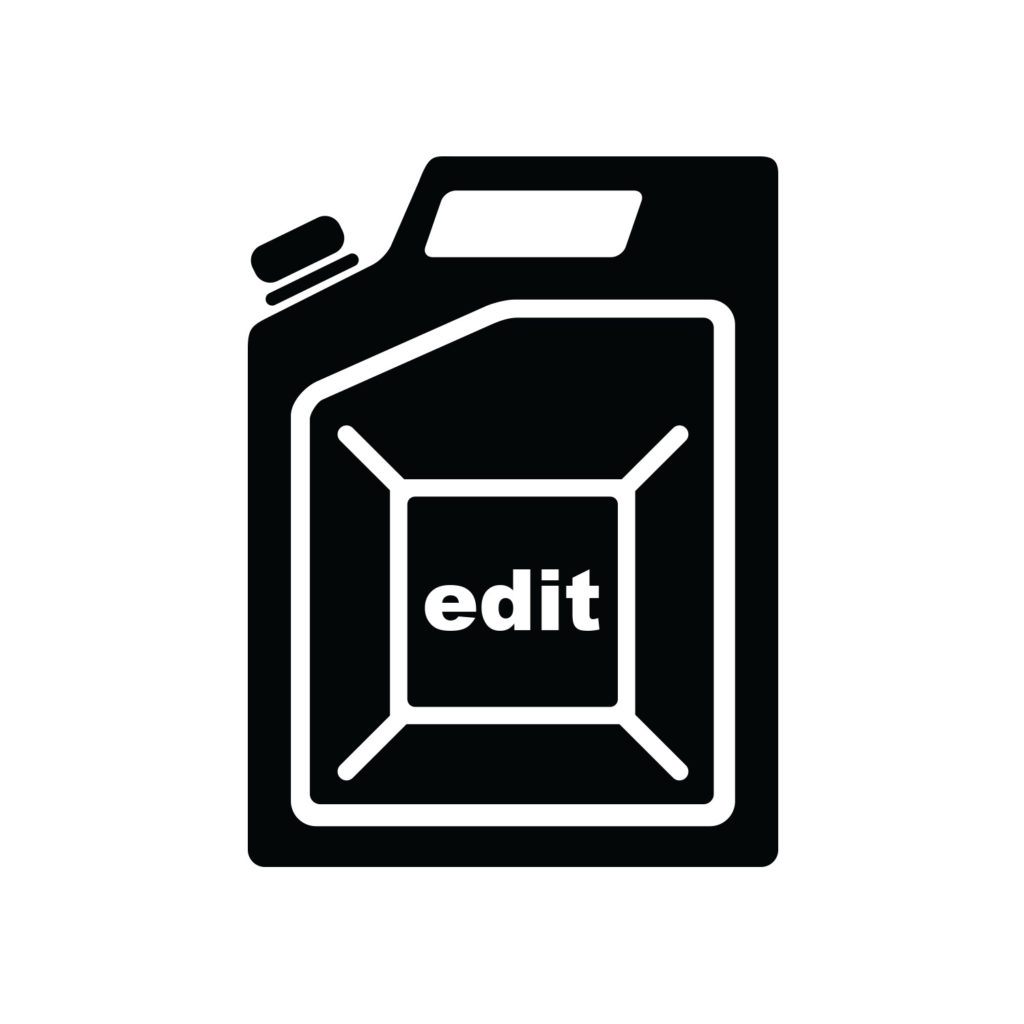
Wisniewski hopes that the archive inspires others to contribute to the organization through joining an edit-a-thon or by simply following along with their efforts. On this she wrote, “I hope that this archive, and the work of Art+Feminism feels accessible and that if our mission, vision, and values resonate with you, that you can (and should!) join us.” If you would like to learn more about how you can join or support the organization, visit their website here. For tips on how to edit on Wikipedia, check out Art+Feminism’s helpful guides here.
As always, we’d like to extend our gratitude to Kira Wisniewski, Amanda Meeks, and the rest of Art+Feminism for allowing us to spotlight their archive. We hope it inspires you to create public archives (or Wikipedia pages!) to help close historical gaps.
- Byte for Byte (5)
- Community (29)
- Control (5)
- Events (3)
- Everyone's An Archivist (10)
- FamilySearch (2)
- Holidays (6)
- Legacy Lab (3)
- Metadata (2)
- Milestones (4)
- Mobile Apps (2)
- Our Features (22)
- Our Team (9)
- Partnerships (7)
- Preservation (38)
- Publish (6)
- Reflections (10)
- Technology (12)
- Uncategorized (7)
- When Disaster Strikes (3)
- AAPI (3)
- AAPI Heritage (3)
- Accessability (1)
- Accessibility (2)
- Activity (2)
- African American (11)
- African American History (1)
- African American History and Culture Museum (1)
- AI (4)
- ALA (1)
- ALA Conference (1)
- ALAAC21 (1)
- Amanda Gorman (1)
- Amberly Russell (1)
- American History (5)
- American Indians in Texas (1)
- American Library Association (1)
- Ancestors (6)
- Ancestral Healing (1)
- Ancestry (5)
- Antebellum Era (1)
- Architectural History (1)
- Architecture (1)
- Archival (2)
- Archive.org (1)
- Archives (6)
- Archiving (1)
- Archivist (1)
- Artificial Intelligence (1)
- Baltimore (1)
- Basics (4)
- Beginners (1)
- Beginning (4)
- Black (1)
- Black History (11)
- Black History Month (8)
- Book Talk (1)
- Boston Tea Party (1)
- Brick Walls (3)
- Bryson Williams (1)
- byte4byte (8)
- Caribbean (1)
- Cemetary (1)
- Cemeteries (1)
- Cemetery (1)
- Census (2)
- Children (2)
- Children's Activity (1)
- Chinese (2)
- Citations (1)
- City Directories (1)
- Civil War (4)
- collaboration (2)
- Community (1)
- Community Archive (2)
- Community Archiving (1)
- conference (2)
- Context (2)
- Cooking (2)
- Creative (4)
- Creativity (1)
- Cultural Competency (1)
- Cultural Heritage (2)
- Danny Trejo (1)
- data privacy (2)
- Database (1)
- David Copperfield (1)
- Death (2)
- Death Records (2)
- DEIA (1)
- Digital Accessibility (2)
- Digital Archiving (3)
- Digital Estate Planning (2)
- Digital Humanities (1)
- Digital Legacy (1)
- Digital Preservation (2)
- digitization (7)
- Digitizing (1)
- Disability (1)
- Discussion (2)
- Diversity (1)
- DIY (1)
- Downsizing (1)
- Education (1)
- elon musk (1)
- Emigration (2)
- endowment (1)
- Equity (1)
- Escape Room (1)
- Estate Planning (1)
- Etherpad (1)
- Excel (1)
- Facial Recognition (1)
- Family (2)
- Family Activity (1)
- Family Archive (2)
- Family history (54)
- family history month (1)
- Family Patterns (2)
- Family Photos (1)
- Family Reunion (1)
- Family Secrets (1)
- family stories (2)
- FamilyHistory (11)
- Fashion (2)
- Fashion History (1)
- Film Negatives (1)
- Find a Grave (1)
- FOIA (1)
- Food History (4)
- Foreign Records (1)
- Forgiveness (1)
- gallery (1)
- Games (1)
- genealogy (63)
- Gifting (1)
- GPS (1)
- grants (1)
- Graves (1)
- guest post (1)
- Handwriting (2)
- Hispanic Heritage (1)
- Historic American Buildings Survey (1)
- Historical Fashion (1)
- History (13)
- Holidays (2)
- Homes (1)
- Human Rights (1)
- Illness (1)
- Immigration (2)
- Inclusion (1)
- Indigenous (1)
- Indigenous Heritage Month (3)
- Indigenous History (3)
- Internet Archive (1)
- Interviewing (1)
- Jewish History (1)
- Jim Crow (1)
- Kids (4)
- Land (2)
- Latinx Heritage (1)
- Laws (2)
- Learning (1)
- Legacy Contact (1)
- Legacy Lab (1)
- Legacy Planning (2)
- Legal (2)
- Letters (1)
- lgbtq (2)
- lgbtq history (1)
- LGBTQIA (2)
- LGBTQIA History (1)
- Library of Congress (3)
- Literature (1)
- Local History (6)
- Maps (2)
- Marriage (1)
- mastodon (1)
- Megan Dolan (1)
- member spotlight (2)
- Member Success (1)
- Memoir (2)
- Memories (27)
- Memory (4)
- Memory Forward (1)
- Metadata (3)
- Metadata Working Group (1)
- Methodology (9)
- Mexico (2)
- Migration (2)
- military (5)
- Military History (4)
- Mission (1)
- mobile apps (2)
- Mysteries (1)
- NAHM (1)
- Native American (1)
- New Orleans (1)
- Newspapers (1)
- Novel Records (1)
- Obama (1)
- OCR (1)
- open source (4)
- Oral History (1)
- organization (2)
- Organize (1)
- Organizing (9)
- Orientation (1)
- Pandemic (1)
- Photo Managers Conference (2)
- Photo organizing (2)
- Photography (3)
- Photos (23)
- ponga (1)
- postcard archive (1)
- postcards (1)
- Preservation (23)
- Preservation Services (1)
- Preservation Week (1)
- Probate Records (1)
- Problem Solving (2)
- product updates (4)
- Professional Development (1)
- Project (1)
- ProjectKin (2)
- public archive (3)
- public archive spotlight (7)
- Public Gallery (1)
- Publish (1)
- Recipe (2)
- Recipes (1)
- Records (18)
- Religion (2)
- Repositories (3)
- Research (8)
- Research Trip (1)
- Resilience (1)
- Resources (1)
- Reunion (1)
- roadmap (1)
- Robert Friedman (3)
- RootsTech (4)
- RootsTech 2024 (4)
- Safety (1)
- Sanborn Maps (1)
- Savemetadata.org (1)
- Scanning (1)
- Scavenger Hunt (2)
- Search Techniques (1)
- Sharing (4)
- Social Clubs (1)
- Social History (6)
- Sociology (1)
- softwaredevelopment (1)
- softwareengineering (2)
- Sources (1)
- spotlight (3)
- staff spotlight (2)
- storage grant (1)
- Stories (18)
- StoryCorps (1)
- storytelling (12)
- Suffragettes (1)
- sustainability plan (2)
- sustainable organization (1)
- Tax Records (1)
- Taxes (1)
- technology (14)
- Thanksgiving (1)
- The Photo Managers (1)
- Timeline (1)
- Tools (7)
- traditions (4)
- Trans History (1)
- Transcribing (1)
- Translating (1)
- Translation (1)
- Trip (1)
- Truth (1)
- twitter (1)
- twittermigration (1)
- ui/ux (1)
- Veterans Day (2)
- Videos (1)
- Volunteering (1)
- webinar (1)
- Website (1)
- Websites (5)
- West Indies (1)
- wikipedia (1)
- Wills (1)
- Women (11)
- Women's History (1)
- Workshop (10)
- Writing (7)
- Writing Club (1)
- WW1 (1)

